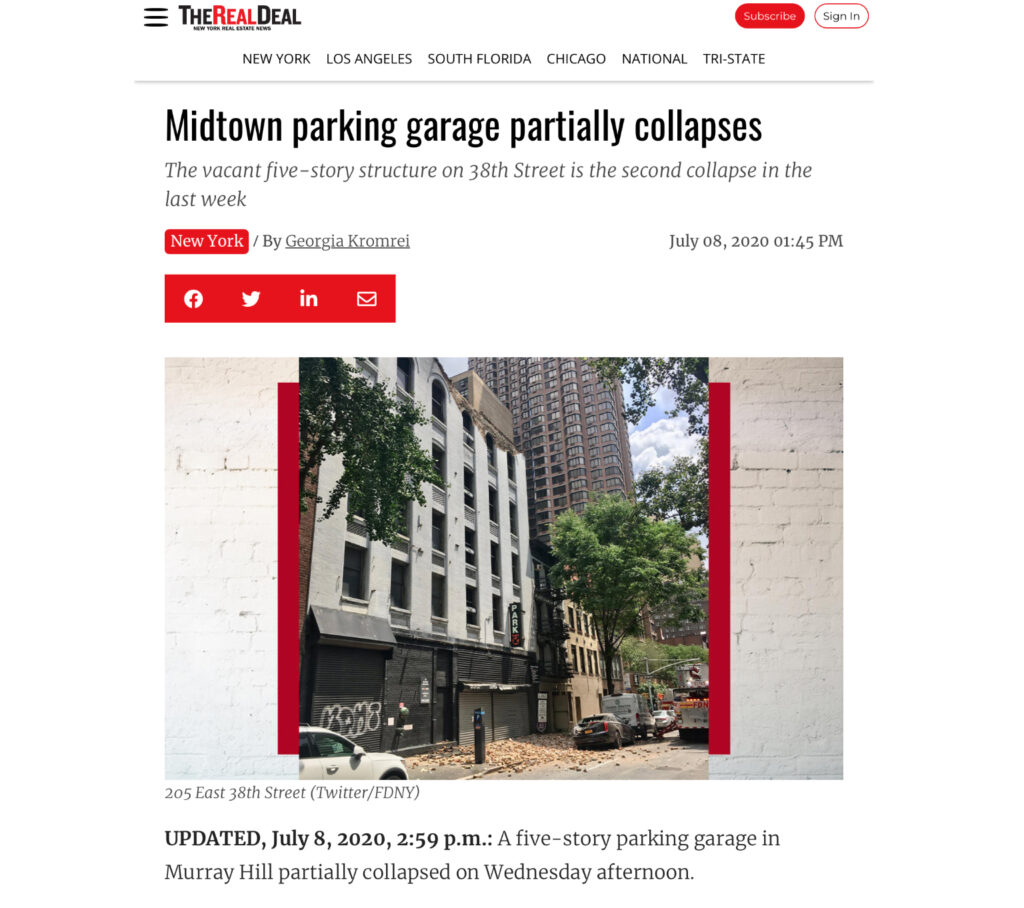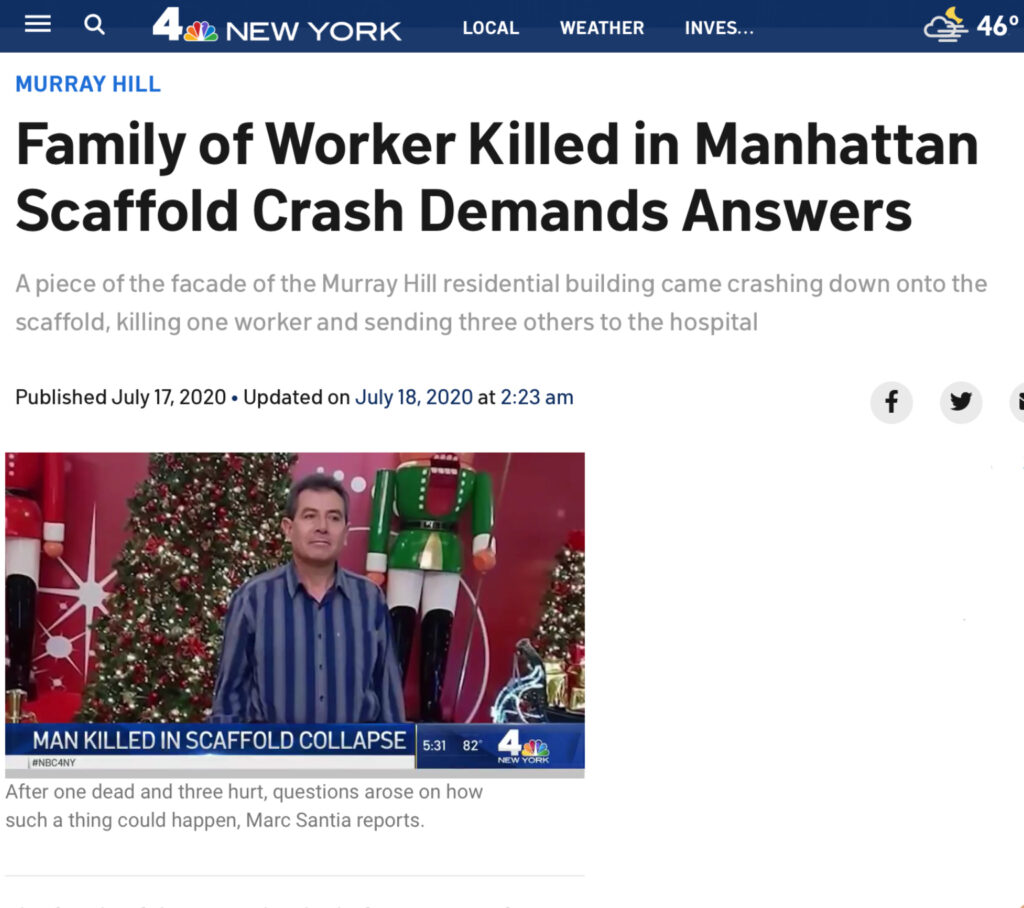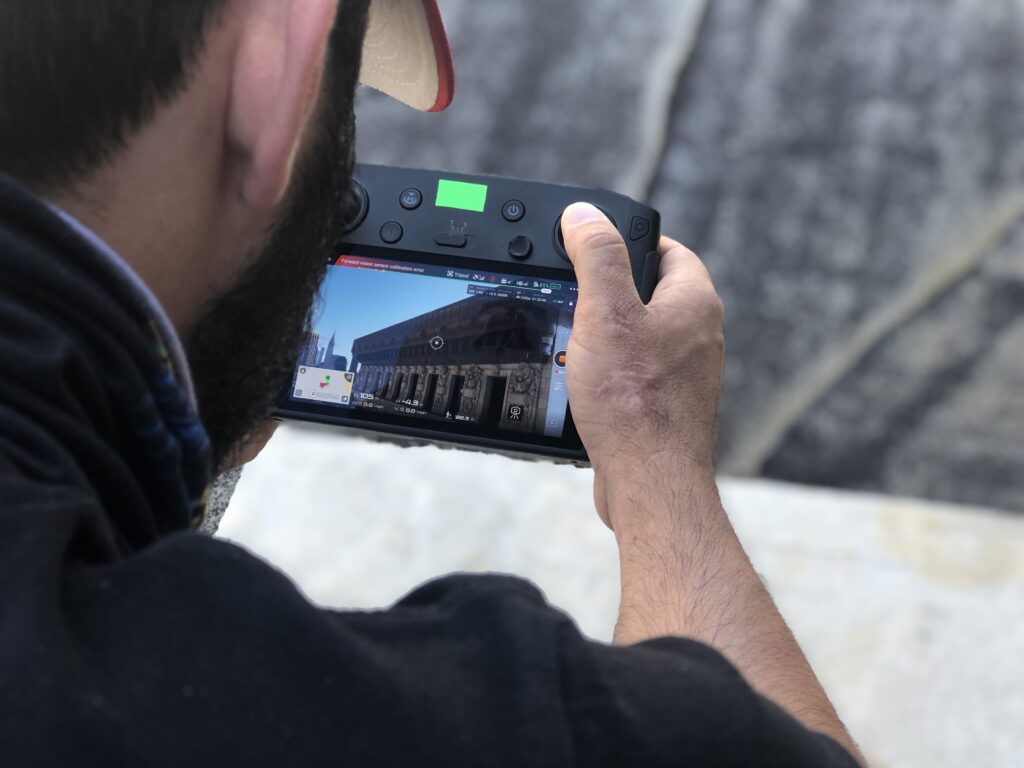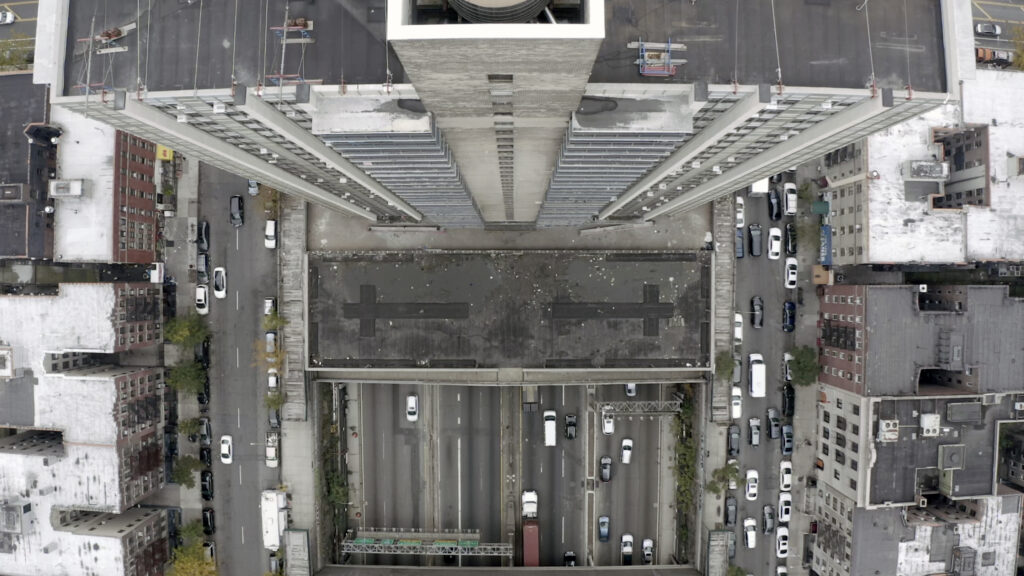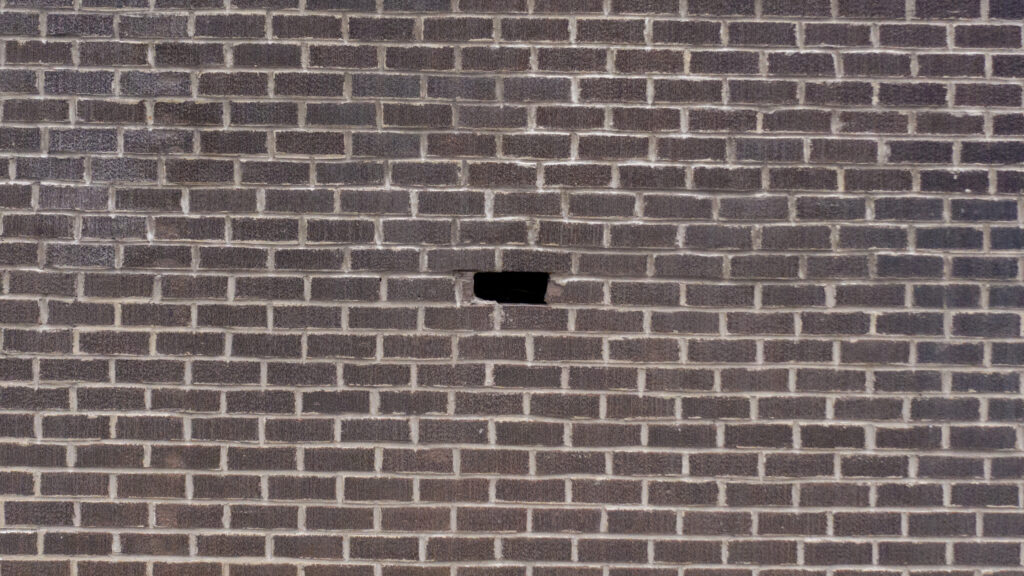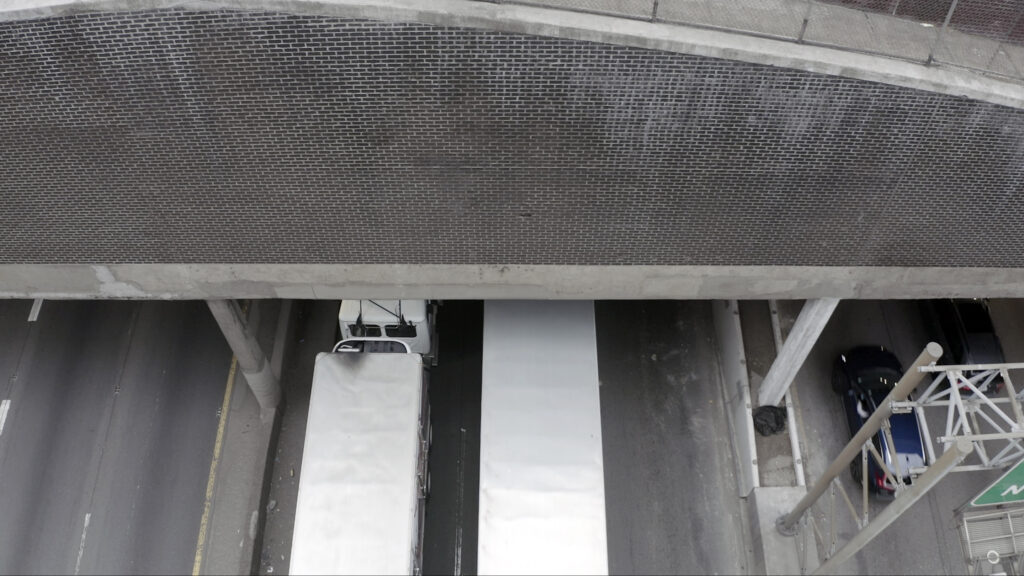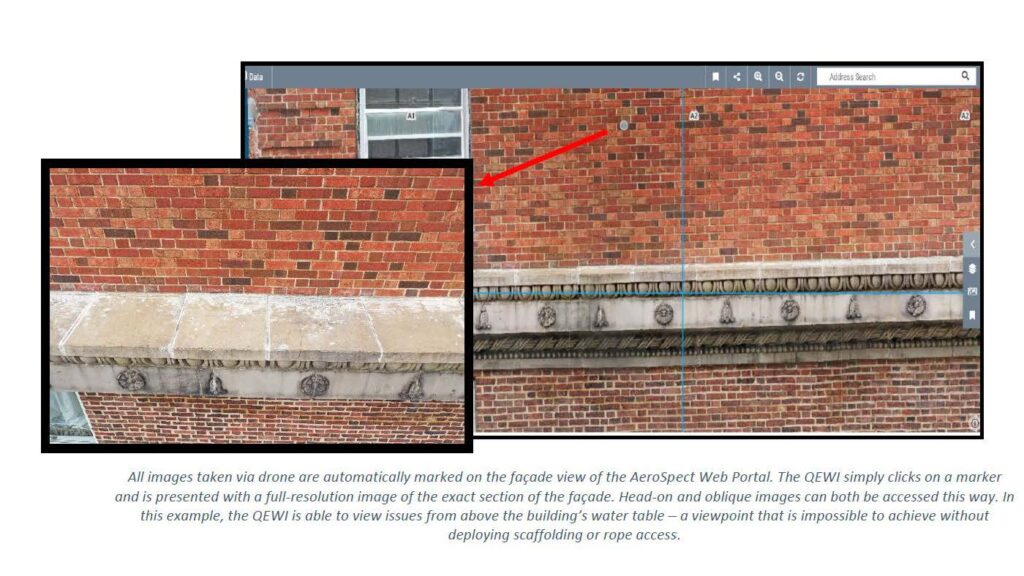The COVID-19 pandemic has exposed countless systemic and infrastructure flaws. From an overtaxed health care system, to an ever widening wealth and education gap, and countless other challenges, there is another dangerous side effect of the pandemic.
In the last year, there’s been an unfortunate uptick in the number of facade related accidents in New York City. Architect Erica Tishman was killed in December 2019 when a chunk of building facade fell off a Midtown tower and struck her. In July alone, within a span of a week, there were two serious accidents, one of which was deadly. A massive wall of bricks collapsed on East 38th Street, injuring a bystander, and just 7 days later, a few blocks away, a construction worker died and at least three other people were hurt in a horrendous chain reaction accident when part of a building facade collapsed onto scaffolding.

